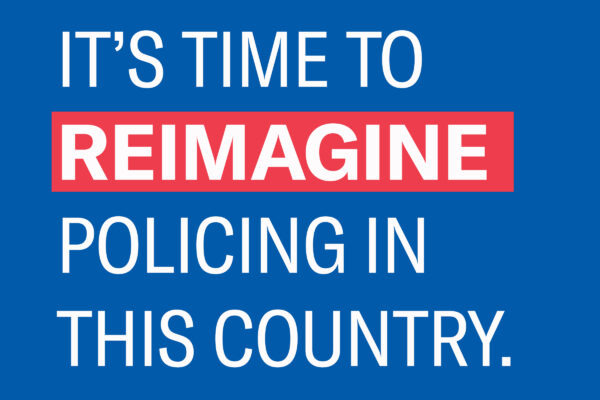The underlying problem with policing isn't just the lack of training and procedures — it’s the broadening of their scope and responsibilities that has led to the unlawful use of excessive force and the killing of Black people.
Police in America are empowered to act as an occupying force in low-income communities and communities of color across the country. Black communities in the United States live under a persistent fear of being killed by the police. And, as the policing presence in these communities has expanded, so have police budgets — with state and local governments allocating over $100 billion a year to law enforcement.
Despite decades of work to curb police violence and to address the systemic racism in our policing and criminal justice systems, the ACLU recognizes that the current challenges demand bold, new approaches to this decades-old problem.
We need to fundamentally reimagine the role police play in our society, and that role has to be smaller, more circumscribed, and less funded with taxpayer dollars.
That is why the ACLU is uniting in solidarity with the Movement for Black Lives to completely reimagine policing by divesting from police and reinvesting in communities targeted by police.
We are committed to significantly reducing the role, responsibilities, and presence of police in the everyday lives of communities that have historically been and continue to be heavily policed and surveilled. We condemn the unlawful killing of Black people by police.
This massive shift will not only reduce the misguided, harmful abuse and harassment of impacted communities by police, but also allow for the money saved to be reinvested into community-based services, resources, and alternatives to policing that are best suited to responding to actual community needs.
In order to accomplish this, ACLU-WV will be working to support Black- and Brown-led community organizations to implement a three-part formula to bring an end our country’s long nightmare with police violence:
o Prohibiting police from enforcing a range of non-serious offenses and eliminating many of the unnecessary interactions between the police and community members that have led to so much violence and so many deaths;
o Reinvesting savings from a reduced police force into alternatives to policing that will keep local communities safe and help them thrive;
o Implementing common-sense, legally-enforceable constraints so that there are only very rare instances in which police officers can use force against community members.
Taking these steps will improve safety, health care and health outcomes, and help create opportunities in communities of color that have suffered from decades of underinvestment in everything except police, racist policies, and their related punitive programs, all of which drive the mass incarceration crisis.
Reforming police powers has been at the heart of the ACLU’s mission since our founding in 1920. In 1931, we spearheaded the issuance of a government report titled “Lawlessness in Law Enforcement.” In 1965, in response to the Watts Rebellion, we opened up our first store front offices to directly document police abuse and to bring a mechanism to impacted communities so they could lodge complaints against the police. After the Rodney King attack in 1991, the ACLU initiated litigation and advocacy to challenge racial profiling and to force the collection of police data by race in 44 state legislatures. In 2015, the ACLU of Minnesota issued its report, “Picking up the Pieces,” documenting biased policing in Minneapolis, a year before the police killing of Philando Castile brought global attention to the city.

